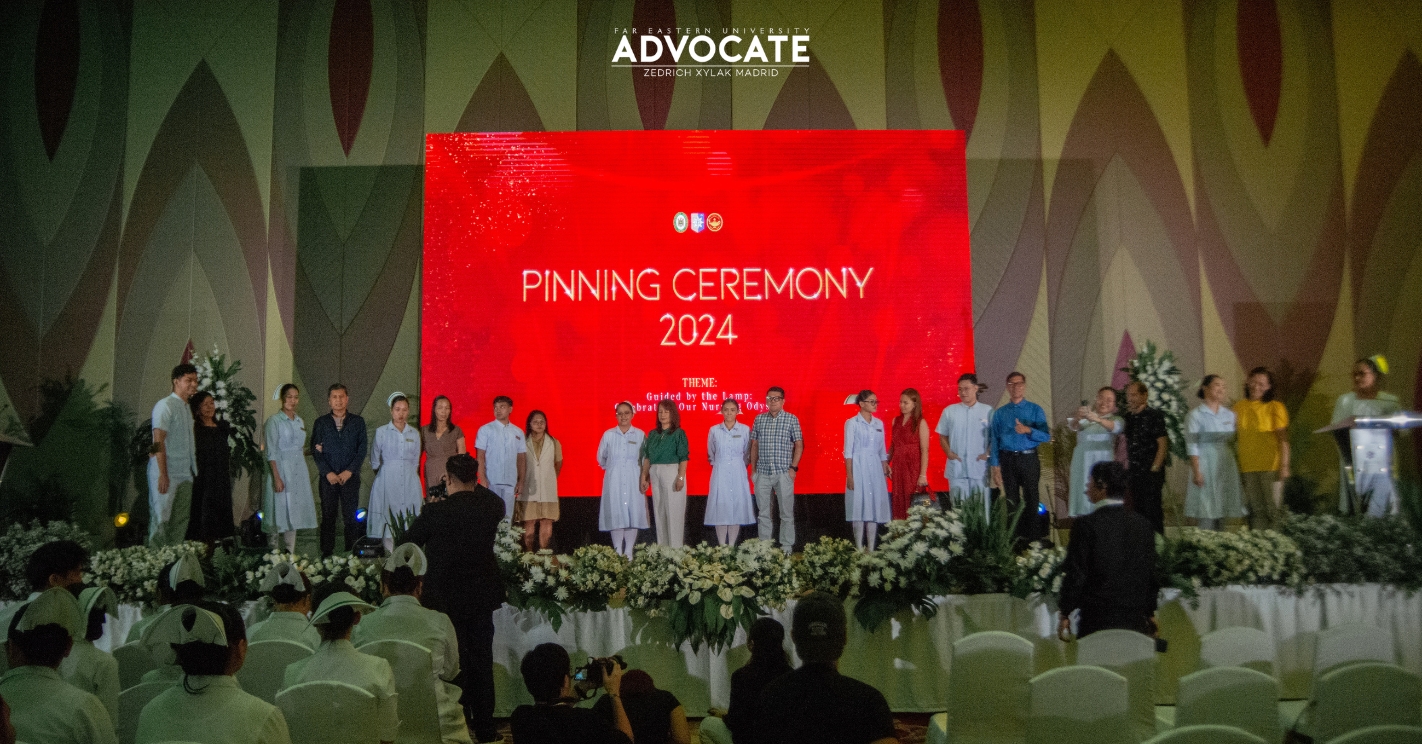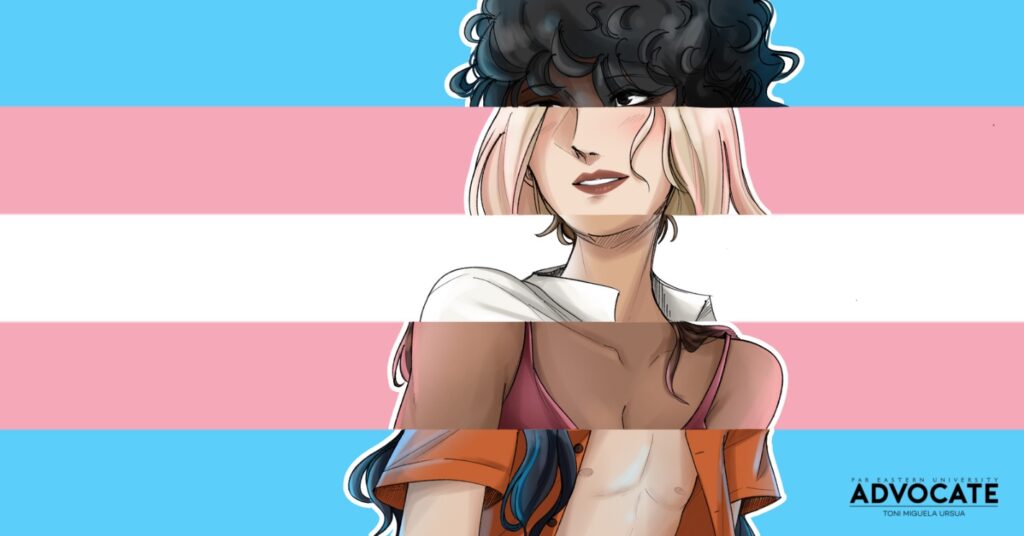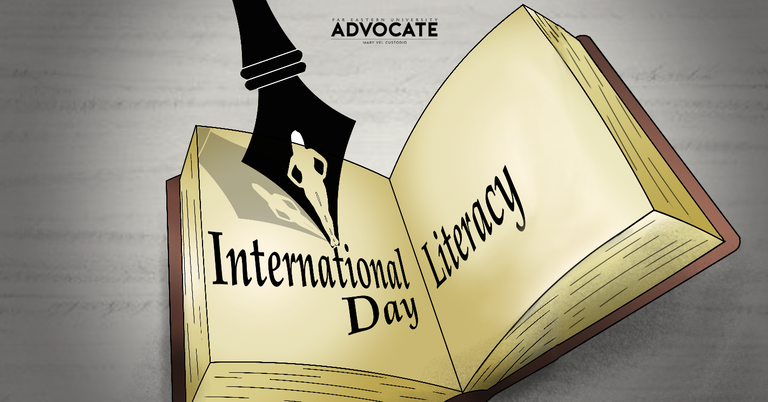
FEU pins 569 student-nurses to complete clinical duties
- July 29, 2024 21:37
FEU Advocate
March 29, 2025 17:16

Daluyong
By Shayne Elizabeth T. Flores, Junior News Writer
In a society fond of definitive labels, it is tough to be boxed into an identity you feel unfit for. Apart from fighting for acceptance as a distinct gender identity in general, trans women also struggle to be recognized within the similarly marginalized community of women they feel tied to. Regardless of the many contentions invalidating their existence, trans women’s self-determination as women is enough to make them so.
Much like any other identities in the LGBTQIA+ community, the place of trans women in society has been a long-standing discourse.
Contrary to its essence as an annual celebration of women’s achievements and contributions in society, the month of March started divisive in the Philippines as assertive debates over who is entitled to the month-long visibility unfolded.
The discourse prompted a rift in the concept of womanhood and how it should be celebrated, highlighting the two sides of cisgender and transgender women as disparate.
On one hand, some argued that women’s month should be exclusive to cis women as their biological features and associated struggles are more ‘legitimate’ than those of trans women. On the other hand, some advocated for a trans-inclusive view of womanhood.
By its basic definition, cis women are defined as individuals whose gender identity coincides with their assigned sex at birth. Meanwhile, trans women are those who were assigned male at birth but identify as women in gender.
Some cis women cited their biological predisposition to pregnancy, monthly menstruation cycle, and other reproductive health issues as factors that shape their identity more valid than trans women.
They also contended that trans women’s struggles can never outweigh the breadth of misogyny biological women experience at the hands of men.
Though having a uterus can indeed be a defining aspect of womanhood, it is superficial and backwards to exclusively confine women’s identity to their bodies, let alone their sufferings.
Not to mention, this argument also invalidates intersex women, who are born with a combination of male and female biological traits, as well as cis women biologically deprived of the capacity to conceive.
Additionally, it also undermines the vulnerability of trans women’s reproductive health, when they, too, endure biological changes and struggles during transition.
Contrary to popular belief, the assertion of cis women’s distinction from trans women does not equate to empowering the ‘reality’ of womanhood. In fact, this line of thinking merely supports the patriarchal system that cis women claim they aim to abolish.
Historically, men have set the connotation that being a woman is determined by their biological sex and specific societal roles, insisting on women’s inferiority to themselves. Thus, it is ironic that the same misogynistic remark is being weaponized by women themselves against trans women.
Notably, a portion of the transgender community backed cis women’s concerns, stating that trans women already have enough opportunities for visibility, such as the Pride Month celebration. Hence, they should just let biological women take the ‘spotlight’ during Women’s Month.
While I want to validate cis women’s concerns as I experience firsthand the struggles of being a woman and cannot blame them for seeking acknowledgement, I believe that further narrowing the margin is ineffective in combating marginalization.
Moreover, this reduces progressive celebrations, such as Women’s and Pride Months, to mere platforms where people must compete for or qualify to belong, when their essence is simply fostering inclusivity and visibility for anyone who identifies as part of their respective communities.
As much as we, women, are beyond our bodies and struggles, further expansion of our community would not diminish our womanhood.
Rather than magnifying our differences, we must concentrate on what makes us alike, especially in our struggle towards gender equality.
Despite becoming more progressive, the Philippines still has a long way to go in bridging the gender gap between men and women.
Last year, the country ranked 25th out of 146 countries in the Global Gender Gap Index 2024 by the World Economic Forum, nine places short of its 16th ranking in 2023. The decrease was attributed to economic parity losses and a downturn in the share of women leaders.
Meanwhile, more than two decades after being filed, the country has yet to pass the Sexual Orientation and Gender Identity Expression or SOGIE Equality Bill to protect the LGBTQIA+ community, including trans women, making them susceptible to discrimination and violence as much as cis women.
Moreover, the trans community also remained deprived of the capacity to change their names and gender marker on official documents to reflect their lived identities, limiting their freedom of gender expression and recognition.
Thus, rather than debating over whose struggles are more legitimate, we must help each other in dismantling the oppressive patriarchal system that confines us to our bodies and even pits us against one another.
The crux of womanhood lies in our self-identity. I am a woman because I declare and feel so. Similarly, trans women are women because they declare and feel so. Womanhood is something that cannot be imposed nor dismissed by anybody but ourselves.
Once we realize that being a woman is fundamentally anchored to our innermost sense and belief that we are a woman, we will no longer see trans women who share the same feelings as threats. Rather, it would redefine our notion that celebrating womanhood is parallel to inclusivity and intersectionality—expanding and ultimately erasing the margin, rather than reinforcing.
Being pushed in and out of the margin can often make us women feel compelled to constantly fight for our place in society, deeming the annual Women’s Month a significant avenue to assert our identity and rights. Cis women’s biological problems, though valid, should not be weaponized to dismiss trans women’s identities. As Women’s Month comes to a close, it must be established that celebration of womanhood transcends the month of March and entails the perpetual inclusion of everyone who identifies as a woman.
(Illustration by Toni Miguela Ursua/FEU Advocate)









